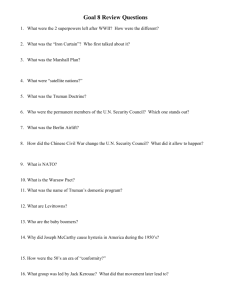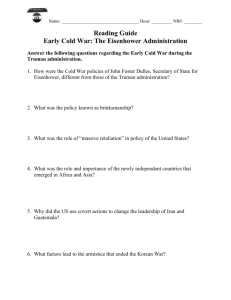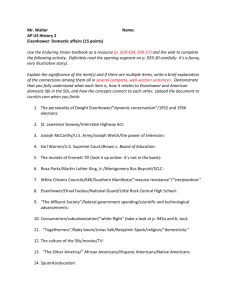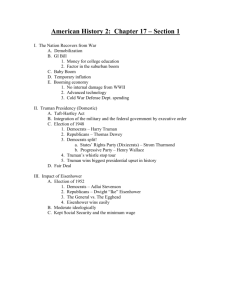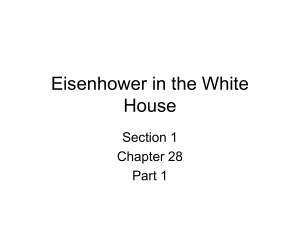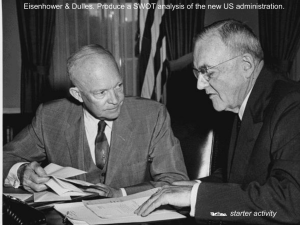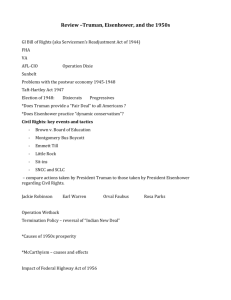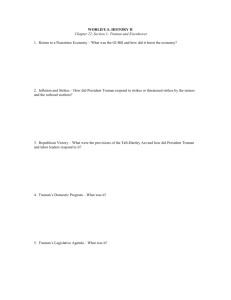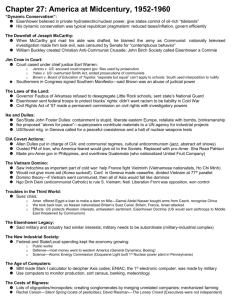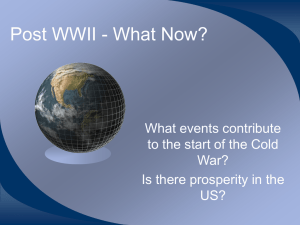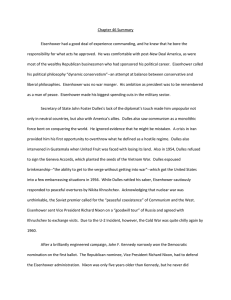Test Review Guide - Greenwich Public Schools
advertisement
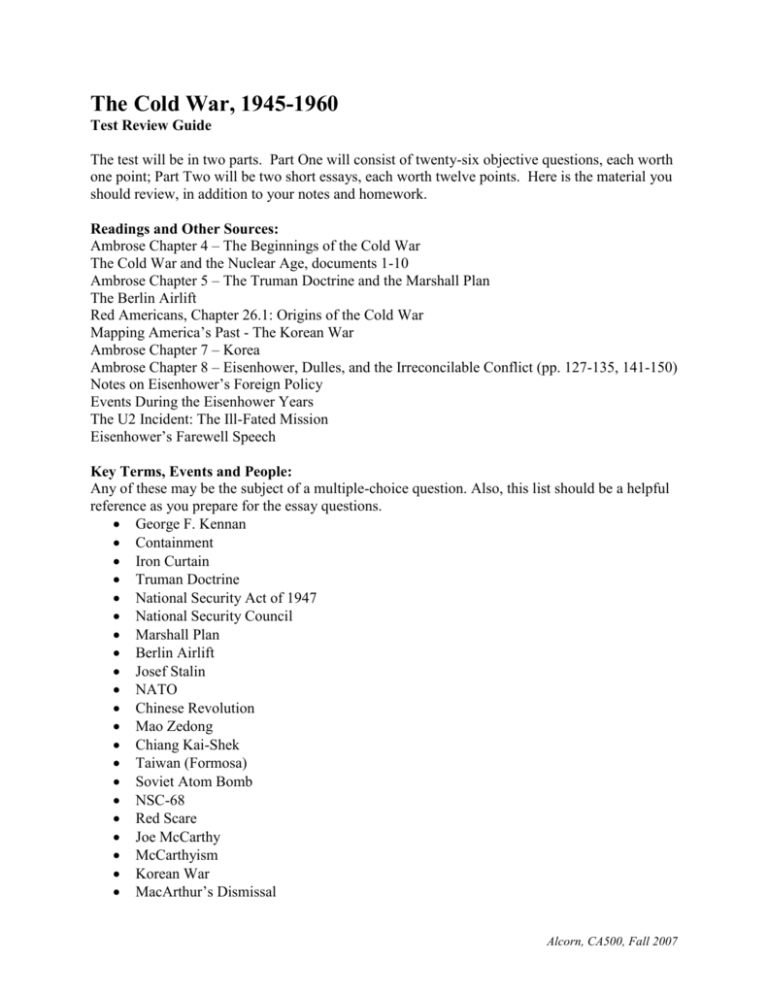
The Cold War, 1945-1960 Test Review Guide The test will be in two parts. Part One will consist of twenty-six objective questions, each worth one point; Part Two will be two short essays, each worth twelve points. Here is the material you should review, in addition to your notes and homework. Readings and Other Sources: Ambrose Chapter 4 – The Beginnings of the Cold War The Cold War and the Nuclear Age, documents 1-10 Ambrose Chapter 5 – The Truman Doctrine and the Marshall Plan The Berlin Airlift Red Americans, Chapter 26.1: Origins of the Cold War Mapping America’s Past - The Korean War Ambrose Chapter 7 – Korea Ambrose Chapter 8 – Eisenhower, Dulles, and the Irreconcilable Conflict (pp. 127-135, 141-150) Notes on Eisenhower’s Foreign Policy Events During the Eisenhower Years The U2 Incident: The Ill-Fated Mission Eisenhower’s Farewell Speech Key Terms, Events and People: Any of these may be the subject of a multiple-choice question. Also, this list should be a helpful reference as you prepare for the essay questions. George F. Kennan Containment Iron Curtain Truman Doctrine National Security Act of 1947 National Security Council Marshall Plan Berlin Airlift Josef Stalin NATO Chinese Revolution Mao Zedong Chiang Kai-Shek Taiwan (Formosa) Soviet Atom Bomb NSC-68 Red Scare Joe McCarthy McCarthyism Korean War MacArthur’s Dismissal Alcorn, CA500, Fall 2007 Korean Armistice 38th Parallel CIA Nikita Kruschev Dwight Eisenhower John Foster Dulles Allen Dulles Arms Race New Look Policy Massive Retaliation Brinkmanship Sputnik Space Race ICBM Coup in Iran Coup in Guatemala Warsaw Pact Hungarian Uprising Suez War Abdel Nasser Eisenhower Doctrine Cuban Revolution Fidel Castro U-2 Incident Military-Industrial Complex Essay Questions: Three of these questions will be on the test; you will select two to answer. Assess the impact of domestic politics on US foreign policy during this period. Was the arms race evidence of a rational foreign policy? Was American foreign policy during this period consistent with the principles articulated in the Truman Doctrine? Imagine you are President. Select one important event during this period and explain how and why you would handle it differently from the actual president. Alcorn, CA500, Fall 2007
